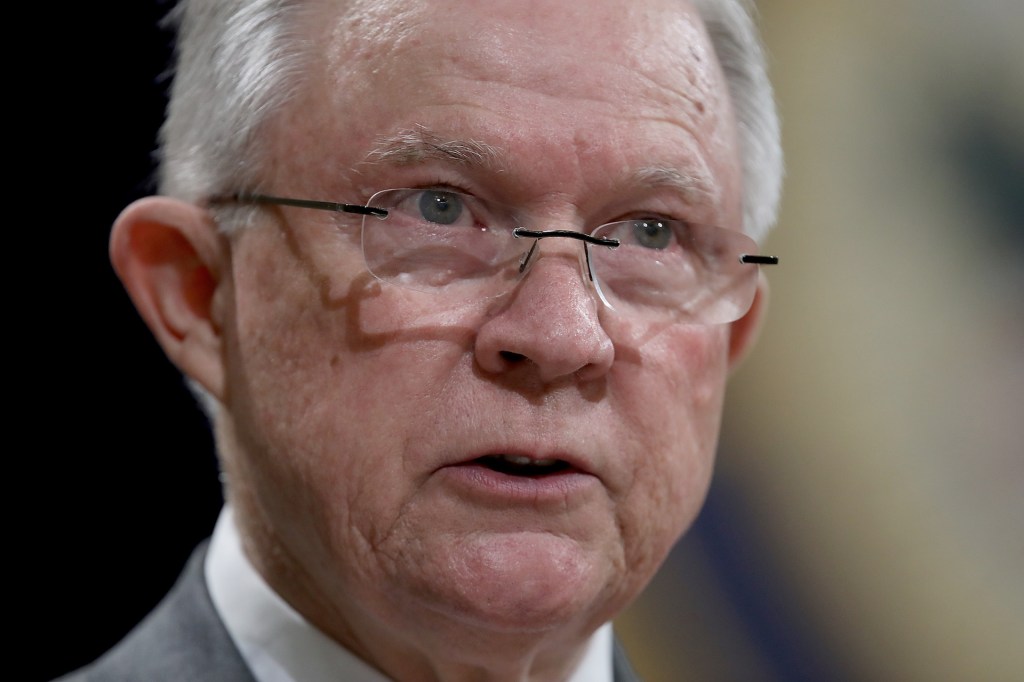Immigration judges are facing pressure from the Trump administration to move deportations faster, but one judge and — and the union representing hundreds of others — aren’t taking it anymore.
The National Association of Immigration Judges, a union that represents some 350 immigration judges across the country, filed a grievance Wednesday against the Executive Office for Immigration Review for replacing a judge in Philadelphia after he delayed the deportation of an undocumented Guatemalan immigrant.
Videos by VICE
On May 31, Judge Steven Morley used a procedure known as “administrative closure” to temporarily pause the removal proceedings for Reynaldo Castro-Tum, who entered the U.S. in 2014 as an unaccompanied minor. Castro-Tum failed to appear for his hearings and Morley cited concern over whether the respondent had even received notice of his court date.
In July, the Trump administration removed Morley from the case without explanation and replaced him with an assistant chief immigration judge, who took over and swiftly ordered Castro-Tum deported.
In response, the union filed a labor grievance against the Executive Office for Immigration Review for interfering with an independent judiciary. “Them taking him off this case is just a message to immigration judges to do what the boss says,” said Matthew Archambault, an attorney who advocated on behalf of the respondent in the case.
Unlike other federal judges, who fall under the judicial branch, immigration judges are overseen by the Executive Office for Immigration Review, which is under the Department of Justice. In other words they are bound by the administration’s policies and thus enjoy far less independence.
But the grievance is a sign that immigration judges are growing increasingly defiant of the Trump administration’s efforts to control the way they manage their cases.
“It is the most blatant example of an affront to decisional independence,” said Judge Dana Leigh Marks, president emeritus of the National Association of Immigration Judges. “It’s a threat to our very existence, the heart of what we are trying to protect.”
Administrative closures, which put a temporary pause on a removal hearing, have been used by immigration judges and the Board of Immigration Appeals as a tool to manage the some 650,000 backlogged cases in the immigration courts.
But in May, Attorney General Jeff Sessions used the Castro-Tum case to set a precedent. In an opinion, Attorney General Sessions ordered an end to the use of the procedure, citing a “need to return these cases to the active docket so that these matters can proceed expeditiously.”
The move drew sharp criticism from more than a dozen retired immigration judges and former members of the Board of Immigration Appeals who penned a letter condemning the decision. “EOIR’s management exists to fulfill an administrative function, not to impede on the decision-making process of its judges,” the group wrote.
This is the second grievance the union of judges has brought against the department under the Trump administration related to questions of due process and decisional independence. In March, when the Department of Justice ordered quotas be set as a measurement for performance evaluations, the union quietly filed yet another grievance with Executive Office for Immigration Review for violating the terms of their labor contract. The Executive Office for Immigration Review rejected the union’s claim and the union is now in arbitration over the matter.
“Morale is at an all-time horrible low,” said Judge Marks, who has been serving as an immigration judge in San Francisco for over 30 years. “Never in the history of the organization have we filed a grievance such as this that goes to the core of our existence.”
A spokesperson for the Executive Office for Immigration Review said Judge Morley was removed from this case because he is being investigated for “potential violations” of federal law and policy. “In any situation where a concern is raised about an immigration judge’s conduct, regardless of whether that concern is raised by a representative, third-party group, or following an internal review, EOIR’s OCIJ investigates the issue thoroughly and will address it appropriately as the facts warrant,” the spokesman said.
Cover image: U.S. Attorney General Jeff Sessions speaks at the Religious Liberty Summit at the Department of Justice July 30, 2018 in Washington, DC. (Photo by Win McNamee/Getty Images)
More
From VICE
-

Shareif Ziyadat/Getty Images -

Screenshot: YouTube/AI Revolution -

Screenshot: Shaun Cichacki -

Screenshot: Xbox Game Studios
